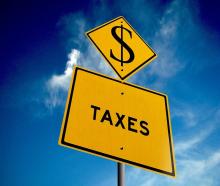ISPs Large and Small Push for Tax Exempt Broadband Grants
After years of efforts, the telecom industry and a range of independent broadband experts are making progress in a quest to make broadband grants tax exempt, a move industry players large and small say is necessary if the federal government wants the historic round of new federal broadband funding to benefit as many un- and under-served Americans as possible.
During previous broadband grant programs, such as the (Broadband Technology Opportunities Program) BTOP and (Broadband Initiatives Program) BIP grants in 2010, the Internal Revenue Service had the authority to unilaterally exempt some grants from taxation.
The Tax Cuts and Jobs Act (TCJA) required that broadband grants be treated as taxable income. As a result, telecom industry watchers have been warning since March that upwards of 21 percent of new grant awards would need to be paid back to the United States government in the form of taxation, complicating project financing and scale.
“Entities expecting to receive grant funds would need to budget for the tax bill, potentially requiring a reduction in the scope of their project,” Casey Lide of the law firm Keller & Heckman wrote in a post detailing the implications. “Entities might also consider structuring a project so that grant funds are received by tax-exempt entities.”
With more than $50 billion in Infrastructure Investment and Jobs Act (IIJA) and American Rescue Plan Act (ARPA) funding waiting in the wings, industry players large and small are working to reverse the changes imposed in 2017 before the tax man comes knocking.



